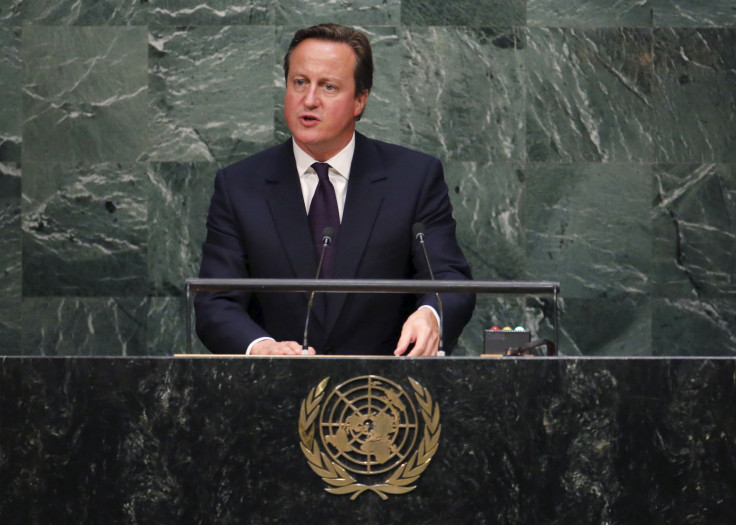UK Pledges $8.8B In Aid To Help Poor Nations Deal With Climate Change

The British government will provide 5.8 billion pounds ($8.8 billion) to countries most affected by climate change, Prime Minister David Cameron said, during the United Nations general assembly in New York Sunday.
The move drastically increases the amount of aid money going to the U.K. International Climate Fund, which was established in 2011 to help developing nations become more resilient to the impact of extreme weather events. The $8.8 billion will be channeled to developing nations between April 2016 and March 2021, and is much higher than the $5.9 billion allocated to the fund for the 2011 to 2016 period.
“Climate change is one of the most serious threats we face … hitting developing countries the hardest,” Amber Rudd, the U.K.’s energy and climate change secretary, said, in a statement released Sunday. “To ensure a more secure and prosperous future for us all, the U.K. is playing its part by helping some of the most vulnerable communities become more resilient to climate change and by supporting the developing world to take the clean energy path to growth and prosperity.”
Cameron said the commitment showed that the U.K. was ready to “play its part” toward the goal of mobilizing $100 billion in climate finance every year by 2020.
“I’m delighted that this weekend we are adopting clear Global Goals to eradicate extreme poverty in the next 15 years but we can’t end poverty and promote sustainable development without addressing climate change,” Cameron said. “That’s why it is so important that we secure an ambitious, global deal in Paris later this year that keeps our goal of limiting global warming by 2050 to 2 degrees within reach.”
The money will come from Britain’s overseas aid budget, which is set at 0.7 percent of GDP -- a target enshrined in law by Cameron’s government. However, he is likely to face stiff opposition from many within his own party, who have, in the past, criticized the legislation.
“[The Bill] says we are going to spend the same amount of money every single year in perpetuity,” Philip Davies, a British Conservative Party politician, reportedly said last September. “That is basically an acceptance that our assistance will fail, that it will not turn around a country’s fortunes … and that it will just be a hand-out to make a few middle-class, Guardian-reading, sandal-wearing, lentil-eating do-gooders with a misguided guilt complex feel better about themselves.”
© Copyright IBTimes 2025. All rights reserved.





















